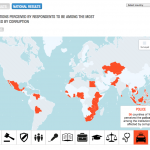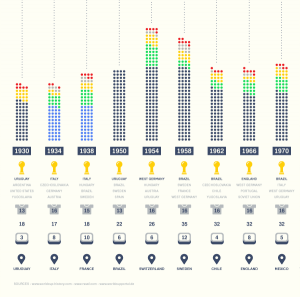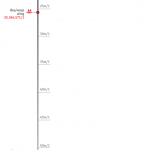Applied Statistics Master’s Degrees
Broadly speaking, an M.S. in Applied Statistics is designed to provide you with hands-on, practical experience in statistical methods – methods you can apply to solving real-world problems. Think sabermetrics (see below), election prediction and more.
In contrast to programs that focus on pure theory, this degree may help you with a career in big data in the public or private sector. To that end, educational programs may supplement statistical knowledge with courses in interdisciplinary data science, research and other essential business skills.
Sponsored Schools
SPONSORED
Courses
Applied statistics degrees are a mix of foundational theory and elective topics. In addition to exploring problems of statistical design, analysis and control, you’ll often be required to complete a practicum or capstone project. Degrees usually take one to two years to complete.
Typical courses may include:
- Mathematical statistics
- Statistical methods
- Advanced SAS programming
- Data mining
- Predictive analytics
- Biostatistics
- Applied data analysis
Admission requirements vary from school to school. Although a degree in statistics or mathematics is not always required, candidates are expected to have a relevant bachelor’s degree, knowledge of computer programming and coursework in calculus, linear algebra, probability theory, and statistics.
Statistics Visualization Examples
1. Global Corruption Barometer (Developer: Transparency International)

2. History of the FIFA World Cup (Developer: Jacopo Ferretti)

3. The Odds of Dying (Developers: James Fransham, Lloyd Parker, Robert Jones and Phil Kenny)

Master’s in Applied Statistics Programs
We found 38 universities in our directory offering Applied Statistics programs.
If you represent a university and would like to contact us about editing any of our listings, or adding new programs, please send an email to info@mastersindatascience.org.
Browse schools by state
Alabama
The University of Alabama
Master of Science in Applied Statistics
Tuscaloosa, Alabama
Name of Degree: Master of Science in Applied Statistics
Enrollment Type: Full-Time and Part-Time
Length of Program: 1.5+ years
Credits: 30
Concentrations: N/AAdmission Requirements:
- Undergraduate degree
- 3.0 GPA
- Unofficial/Official transcripts
- Resume
- GRE Scores
- Statement of purpose
- Three letters of recommendation
- TOEFL/IELTS Score for International Students
California
University of California – Santa Barbara
Master of Arts in Statistics – Data Science Track
Santa Barbara, California
Name of Degree: Master of Arts in Statistics – Data Science Track
Enrollment Type: Full-Time and Part-Time
Length of Program: N/A
Credits: 42
Concentrations: N/AAdmission Requirements:
- Undergraduate degree
- 3.0 GPA
- Unofficial/Official transcripts
- TOEFL/IELTS Score for International Students
- “B” or better in previously completed statistics courses
California State University at Long Beach
Applied Statistics Graduate Program
Long Beach, California
Name of Degree: Applied Statistics Graduate Program
Enrollment Type: Full-Time
Length of Program: 2 years
Credits: 30
Concentrations: N/AAdmission Requirements:
- Undergraduate degree
- 3.0 GPA
- Unofficial/Official transcripts
- Resume
- GRE Scores
- Statement of purpose
- Three letters of recommendation
- TOEFL/IELTS Score for International Students
Stanford University
School of Humanities and Sciences
Master of Science in Statistics
Stanford, California
Name of Degree: Master of Science in Statistics
Enrollment Type: Full-Time
Length of Program: 2 years
Credits: 30
Concentrations: N/AAdmission Requirements:
- Undergraduate degree
- 3.0 GPA
- Unofficial/Official transcripts
- Resume
- Statement of purpose
- Two letters of recommendation
- TOEFL/IELTS Score for International Students
Colorado
Colorado State University
Master of Arts in Statistics
Fort Collins, Colorado
Name of Degree: Master of Arts in Statistics
Enrollment Type: Full-Time
Length of Program: 2 years
Credits: 30
Concentrations: N/AAdmission Requirements:
- Undergraduate degree
- 3.0 GPA
- Unofficial/Official transcripts
- Resume
- Statement of purpose
- Three letters of recommendation
- GRE Scores
- TOEFL/IELTS Score for International Students
Connecticut
Yale University
Terminal Master of Arts/Master of Science Program
New Haven, Connecticut
Name of Degree: Terminal Master of Arts/Master of Science Program
Enrollment Type: Full-Time
Length of Program: 2 years
Credits: 30
Concentrations: N/AAdmission Requirements:
- Undergraduate degree
- 3.0 GPA
- Unofficial/Official transcripts
- Resume
- Statement of purpose
- Three letters of recommendation
- GRE Scores
- TOEFL/IELTS Score for International Students
Delaware
University of Delaware
Masters in Applied Statistics
Newark, Delaware
Name of Degree: Masters in Applied Statistics
Enrollment Type: Full-Time
Length of Program: 2 years
Credits: 30
Concentrations: N/AAdmission Requirements:
- Undergraduate degree
- 2.5 GPA
- Unofficial/Official transcripts
- Resume
- Statement of purpose
- Three letters of recommendation
- TOEFL/IELTS Score for International Students
- Prerequisite courses
Florida
Florida State University
Master of Science in Statistics
Tallahassee, Florida
Name of Degree: Master of Science in Statistics
Enrollment Type: Full-Time
Length of Program: 2 years
Credits: 32
Concentrations: N/AAdmission Requirements:
- Undergraduate degree
- 3.0 GPA
- Unofficial/Official transcripts
- Resume
- Statement of purpose
- Three letters of recommendation
- GRE Scores
- TOEFL/IELTS Score for International Students
- Prerequisite courses
University of Central Florida
Master of Science in Statistics and Data Science
Orlando, Florida
Name of Degree: Master of Science in Statistics and Data Science
Enrollment Type: Full-Time and Part-Time
Length of Program: 1+ years
Credits: 36
Concentrations: N/AAdmission Requirements:
- Undergraduate degree
- Unofficial/Official transcripts
- Resume or CV
- Statement of purpose
- TOEFL/IELTS Score for International Students
- Prerequisite courses
- 3.0 GPA
- GRE Scores
Georgia
Kennesaw State University
Master of Science in Applied Statistics and Analytics
Kennesaw, Georgia
Name of Degree: Master of Science in Applied Statistics and Analytics
Enrollment Type: Full-Time and Part-Time
Length of Program: 2 years
Credits: 36
Concentrations: N/AAdmission Requirements:
- Undergraduate degree
- Unofficial/Official transcripts
- Resume or CV
- Statement of purpose
- TOEFL/IELTS Score for International Students
- Prerequisite courses
Illinois
Loyola University
Master of Science in Applied Statistics
Chicago, Illinois
Name of Degree: Master of Science in Applied Statistics
Enrollment Type: Full-Time
Length of Program: 2 years
Credits: 29
Concentrations: N/AAdmission Requirements:
- Undergraduate degree
- 3.0 GPA
- Unofficial/Official transcripts
- Resume
- Statement of purpose
- Three letters of recommendation
- GRE Scores
- TOEFL/IELTS Score for International Students
- Prerequisite courses
Indiana
University of Notre Dame
College of Science
Master of Science in Applied and Computational Mathematics and Statistics
Notre Dame, Indiana
Name of Degree: Master of Science in Applied and Computational Mathematics and Statistics
Enrollment Type: Full-Time and Part-Time
Length of Program: N/A
Credits: 30
Concentrations: N/AAdmission Requirements:
- Undergraduate degree
- 3.0 GPA
- Unofficial/Official transcripts
- Resume
- Statement of purpose
- Three letters of recommendation
- GRE Scores
- TOEFL/IELTS Score for International Students
- Prerequisite courses
International
ENSAI École Nationale de Statistique et Analyse de l'Information
Master for Smart Data Science
Bruz, France
Name of Degree: Master for Smart Data Science
Enrollment Type: Full-Time and Part-Time
Length of Program: Less than 1 year
Credits: 60
Concentrations: N/AAdmission Requirements:
- Undergraduate degree
- Unofficial/Official transcripts
- GRE Scores
- TOEFL/IELTS Score for International Students
- Prerequisite courses
- 3.0 GPA
- No GRE required
The University of Hong Kong
Master's in Statistics
Hong Kong, China
Name of Degree: Master’s in Statistics
Enrollment Type: Full-Time and Part-Time
Length of Program: 1+ years
Credits: 60
Concentrations: N/AAdmission Requirements:
- Undergraduate degree
- Unofficial/Official transcripts
- TOEFL/IELTS Score for International Students
- Prerequisite courses
- Interview
- Admissions Test
The University of St Andrews
Applied Statistics and Data Mining
St. Andrews, Scotland
Name of Degree: Applied Statistics and Data Mining
Enrollment Type: Full-Time and Part-Time
Length of Program: 1+ years
Credits: N/A
Concentrations: N/AAdmission Requirements:
- Undergraduate degree
- Unofficial/Official transcripts
- Resume or CV
- Statement of purpose
- Two letters of recommendation
- TOEFL/IELTS Score for International Students
- Prerequisite courses
- No GRE required
Kentucky
The University of Kansas
Applied Statistics, Analytics & Data Science Graduate Program
Overland Park, Kansas
Name of Degree: Applied Statistics, Analytics & Data Science Graduate Program
Enrollment Type: Full-Time and Part-Time
Length of Program: 1+ years
Credits: 30
Concentrations: N/AAdmission Requirements:
- Undergraduate degree
- Unofficial/Official transcripts
- Resume or CV
- Statement of purpose
- Three letters of recommendation
- TOEFL/IELTS Score for International Students
- Prerequisite courses
- 3.0 GPA
- No GRE required
University of Kentucky
Master of Applied Statistics
Lexington, Kentucky
Name of Degree: Master of Applied Statistics
Enrollment Type: Full-Time and Part-Time
Length of Program: 1+ years
Credits: 33+
Concentrations: N/AAdmission Requirements:
- Undergraduate degree
- Unofficial/Official transcript
- Resume or CV
- Statement of purpose
- Two letters of recommendation
- TOEFL/IELTS Score for International Students
- Prerequisite course
- GRE Scores
Michigan
Central Michigan University
Master of Science in Applied Statistics and Data Science
Mount Pleasant, Michigan
Name of Degree: Master of Science in Applied Statistics and Data Science
Enrollment Type: Part-Time
Length of Program: 2 years
Credits: 30-33
Concentrations: N/AAdmission Requirements:
- Undergraduate degree
- Unofficial/Official transcripts
- Resume or CV
- Statement of purpose
- TOEFL/IELTS Score for International Students
- Prerequisite courses
- 3.0 GPA
- GRE Scores
Eastern Michigan University
Master of Arts in Applied Statistics
Ypsilanti, Michigan
Name of Degree: Master of Arts in Applied Statistics
Enrollment Type: Full-Time and Part-Time
Length of Program: 1+ years
Credits: 31-34
Concentrations: N/AAdmission Requirements:
- Undergraduate degree
- Unofficial/Official transcripts
- Resume or CV
- Statement of purpose
- Two letters of recommendation
- TOEFL/IELTS Score for International Students
- Prerequisite courses
- A statement of financial responsibility for those who are or will be on an F- 1 or J- 1 visa
- GRE Scores
Michigan State University
Master of Science in Applied Statistics
East Lansing, Michigan
Name of Degree: Master of Science in Applied Statistics
Enrollment Type: Full-Time and Part-Time
Length of Program: 1+ years
Credits: 33
Concentrations: N/AAdmission Requirements:
- Undergraduate degree
- Unofficial/Official transcripts
- Resume or C
- Statement of purpos
- Three letters of recommendation
- TOEFL/IELTS Score for International Students
- Prerequisite courses
- 3.0 GPA
Oakland University
Masters of Science in Industrial Applied Mathematics
Oakland, Michigan
Name of Degree: Masters of Science in Industrial Applied Mathematics
Enrollment Type: Full-Time and Part-Time
Length of Program: 1+ years
Credits: 32
Concentrations: N/AAdmission Requirements:
- Undergraduate degree
- Unofficial/Official transcripts
- Resume or CV
- Statement of purpose
- TOEFL/IELTS Score for International Students
- Prerequisite courses
- 3.0 GPA
University of Michigan
Master's in Applied Statistics
Ann Arbor, Michigan
Name of Degree: Master’s in Applied Statistics
Enrollment Type: Full-Time and Part-Time
Length of Program: 1+ years
Credits: 30
Concentrations: N/AAdmission Requirements:
- Undergraduate degree
- Unofficial/Official transcripts
- Resume or CV
- Statement of purpose
- TOEFL/IELTS Score for International Students
- Prerequisite courses
- 3.0 GPA
Missouri
Washington University
McKelvey School of Engineering
Master of Science in Data Analytics & Statistics
St. Louis, Missouri
Name of Degree: Master of Science in Data Analytics & Statistics
Enrollment Type: Full-Time and Part-Time
Length of Program: 1+ years
Credits: 30
Concentrations: N/AAdmission Requirements:
- Undergraduate degree
- Unofficial/Official transcripts
- Resume or CV
- 3.0 GPA
- Statement of purpose
- Three letters of recommendation
- TOEFL/IELTS Score for International Students
- Prerequisite courses
New Jersey
New Jersey Institute of Technology
Master of Science in Applied Statistics
Newark, New Jersey
Name of Degree: Master of Science in Applied Statistics
Enrollment Type: Full-Time and Part-Time
Length of Program: N/A
Credits: 30
Concentrations: N/ANew Mexico State University
Master of Science in Applied Statistics
Las Cruces, New Mexico
Name of Degree: Master of Science in Applied Statistics
Enrollment Type: Full-Time and Part-Time
Length of Program: N/A
Credits: 34
Concentrations: N/ANew York
Cornell University
Master of Professional Studies in Applied Statistics
Ithaca, New York
Name of Degree: Master of Professional Studies in Applied Statistics
Enrollment Type: Full-Time and Part-Time
Length of Program: 1.5+ years
Credits: 30
Concentrations: N/AAdmission Requirements:
- Undergraduate degree
- Unofficial/Official transcripts
- Resume or CV
- 3.0 GPA
- GRE Scores
- Statement of purpose
- Three letters of recommendation
- TOEFL/IELTS Score for International Students
- Prerequisite courses
New York University
Master of Science Applied Statistics for Social Science
New York City, New York
Name of Degree: Master of Science Applied Statistics for Social Science
Enrollment Type: Full-Time and Part-Time
Length of Program: 1.5+ years
Credits: 34-44
Concentrations: N/AAdmission Requirements:
- Undergraduate degree
- Unofficial/Official transcripts
- Resume or CV
- 3.0 GPA
- Writing Sample
- Statement of purpose
- Two letters of recommendation
- TOEFL/IELTS Score for International Student
- Prerequisite courses
Rochester Institute of Technology
Master of Science in Applied Statistics
Rochester, New York
Name of Degree: Master of Science in Applied Statistics
Enrollment Type: Full-Time and Part-Time
Length of Program: 2 years
Credits: 30
Concentrations: N/AAdmission Requirements:
- Undergraduate degree
- Unofficial/Official transcript
- Resume or CV
- 3.0 GPA
- Writing Sample
- Statement of purpose
- Two letters of recommendation
- TOEFL/IELTS Score for International Students
- Prerequisite courses
- GRE Scores
North Dakota
North Dakota State University
Master of Science in Statistics
Fargo, North Dakota
Name of Degree: Master of Science in Statistics
Enrollment Type: Full-Time and Part-Time
Length of Program: Less than 1 year
Credits: 32
Concentrations: N/AAdmission Requirements:
- Undergraduate degree
- Unofficial/Official transcripts
- Resume or CV
- 3.0 GPA
- Statement of purpose
- Three letters of recommendation
- TOEFL/IELTS Score for International Students
- Prerequisite courses
Ohio
Bowling Green State University
Master of Science in Applied Statistics
Bowling Green, Ohio
Name of Degree: Master of Science in Applied Statistics
Enrollment Type: Full-Time and Part-Time
Length of Program: 2 years
Credits: 33-36
Concentrations: N/AAdmission Requirements:
- Undergraduate degree
- Unofficial/Official transcripts
- Resume or CV
- 3.0 GPA
- Statement of purpose
- Two letters of recommendation
- TOEFL/IELTS Score for International Students
- Prerequisite courses
The Ohio State University
Master of Applied Statistics
Columbus, Ohio
Name of Degree: Master of Applied Statistics
Enrollment Type: Full-Time and Part-Time
Length of Program: 2 years
Credits: 33
Concentrations: N/AAdmission Requirements:
- Undergraduate degree
- Unofficial/Official transcripts
- Resume or CV
- 3.0 GPA
- Statement of purpose
- Three letters of recommendation
- TOEFL/IELTS Score for International Students
- Prerequisite courses
Pennsylvania
The Pennsylvania State University
Master of Applied Statistics
University Park, Pennsylvania
Name of Degree: Master of Applied Statistics
Enrollment Type: Full-Time and Part-Time
Length of Program: 1.5+ years
Credits: 30
Concentrations: N/AAdmission Requirements:
- Undergraduate degree
- Unofficial/Official transcripts
- Resume or CV
- Statement of purpose
- TOEFL/IELTS Score for International Students
- Prerequisite courses
- 3.0 GPA
- GRE Scores
Villanova University
Master of Science in Applied Statistics
Villanova, Pennsylvania
Name of Degree: Master of Science in Applied Statistics
Enrollment Type: Full-Time and Part-Time
Length of Program: 1+ years
Credits: 36
Concentrations: N/AAdmission Requirements:
- Undergraduate degree
- Unofficial/Official transcripts
- Resume or CV
- Statement of purpose
- TOEFL/IELTS Score for International Students
- Prerequisite courses
- 3.0 GPA
- GRE Scores
South Carolina
University of South Carolina
Master of Science in Statistics
Columbia, South Carolina
Name of Degree: Master of Science in Statistics
Enrollment Type: Full-Time and Part-Time
Length of Program: 1.5+ years
Credits: 35
Concentrations: N/AAdmission Requirements:
- Undergraduate degree
- Unofficial/Official transcripts
- Resume or CV
- Statement of purpose
- TOEFL/IELTS Score for International Students
- Prerequisite courses
- 3.0 GPA
- GRE Scores
Texas
Southern Methodist University
Master of Science in Applied Statistics
Dallas, Texas
Name of Degree: Master of Science in Applied Statistics
Enrollment Type: Full-Time and Part-Time
Length of Program: 2 years
Credits: 36
Concentrations: N/AAdmission Requirements:
- Undergraduate degree
- Unofficial/Official transcripts
- Resume or CV
- Statement of purpose
- TOEFL/IELTS Score for International Students
- Prerequisite courses
- 3.0 GPA
- GRE Scores
Texas A&M University
Master of Science in Statistics
College Station, Texas
Name of Degree: Master of Science in Statistics
Enrollment Type: Full-Time and Part-Time
Length of Program: 1+ years
Credits: 36
Concentrations: N/AAdmission Requirements:
- Undergraduate degree
- Unofficial/Official transcripts
- Resume or CV
- Statement of purpose
- TOEFL/IELTS Score for International Students
- Prerequisite courses
- 3.0 GPA
- GRE Scores
University of Texas at San Antonio
Master of Science in Statistics and Data Science
San Antonio, Texas
Name of Degree: Master of Science in Statistics and Data Science
Enrollment Type: Full-Time and Part-Time
Length of Program: 1+ years
Credits: 33
Concentrations: N/AAdmission Requirements:
- Undergraduate degree
- Unofficial/Official transcripts
- TOEFL/IELTS Score for International Students
- Prerequisite courses
- 3.0 GPA
- GRE Scores
Wisconsin
Marquette University
Master's in Applied Statistics
Milwaukee, Wisconsin
Name of Degree: Master’s in Applied Statistics
Enrollment Type: Full-Time and Part-Time
Length of Program: 1+ years
Credits: 30
Concentrations: N/AAdmission Requirements:
- Undergraduate degree
- Unofficial/Official transcripts
- Resume or CV
- Statement of purpose
- TOEFL/IELTS Score for International Students
- Prerequisite courses
- 3.0 GPA
- No GRE Scores required
University of Wisconsin – Madison
Master's in Statistics: Data Science
Madison, Wisconsin
Name of Degree: Master’s in Statistics: Data Science
Enrollment Type: Full-Time and Part-Time
Length of Program: 1+ years
Credits: 30
Concentrations: N/AAdmission Requirements:
- Undergraduate degree
- Unofficial/Official transcripts
- Resume or CV
- Statement of purpose
- TOEFL/IELTS Score for International Students
- Prerequisite courses
- 3.0 GPA
- GRE Scores

